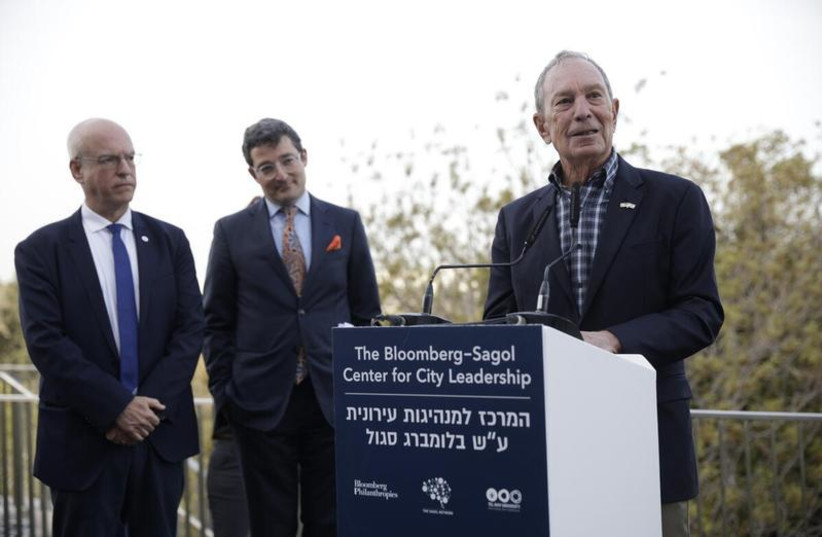Mayors have some of the most demanding jobs in government. Whether it’s managing the services that citizens count on every day or addressing a crisis that requires strong and steady leadership, people look to mayors to be action-oriented problem-solvers.
Amid the recent surge in terrorist attacks in Israel, mayors will play a critical role in helping to keep communities safe. Beginning this fall, a new program we are launching will help them do it, providing resources and training that match their resolve.
On Sunday, I joined my friend, Yossi Sagol, to announce the creation of the Bloomberg-Sagol Center for City Leadership at Tel Aviv University. Modeled on the successful Bloomberg Harvard City Leadership Initiative, the center will deliver world-class management training to help Israeli mayors and their teams lead through crisis and deliver public services more effectively.
I was elected mayor of New York City just seven weeks after the terrorist attacks of September 11, 2001, and from day one, leading through crisis defined the job. During my 12 years in city hall, our administration faced a variety of additional crisis-level challenges: a blackout, a transit strike, a deep recession, public health emergencies and other issues. But, every day brought new challenges. Each presented new opportunities to improve people’s lives, and each required management and leadership skills that I was lucky enough to have developed during my decades starting and running a financial data and media company, Bloomberg LP.
Most mayors, however, have not run large organizations when they take office. In the private sector, there are all kinds of leadership training programs for CEOs and senior executives. But in the public sector, they didn’t exist. Mayors are thrust into the job and the crises that arise without having a lot of resources to draw upon.

To help US mayors get the support they need, Bloomberg Philanthropies teamed up with Harvard University to create a leadership training program. Our partnership was the first of its kind and over the past six years, it has proved very successful. Almost 200 mayors and 300 more senior government leaders have graduated from the program.
The program has been particularly valuable during COVID, when mayors often lacked adequate guidance from state and federal governments. It has provided the mayors with opportunities to hear from a global network of public health and crisis management experts. They received operational training in real time, and they supported and shared lessons with one another. Many of the program’s features also helped mayors as their cities experienced racial justice protests and as they began to develop economic recovery plans.
Now, Israel’s mayors will have the chance to join a similar network. It was Yossi Sagol’s idea to use the Bloomberg-Harvard model as the inspiration for a new program here and when he proposed it to our team, we jumped at the opportunity. In partnership with Tel Aviv University, the new center will train 20 mayors and key staff every year. And, when Israeli mayors travel to Boston and New York City to meet their American counterparts, we will help build even stronger connections between our two democracies.
The Bloomberg-Sagol Center is just the latest example of a strong and growing collaboration between Bloomberg Philanthropies and our partners here in Israel. In recent years, we have created Innovation Teams to advance mayors’ top priorities, starting in Tel Aviv, Jerusalem and Be’er Sheva. The Israeli government took note of their success and through the Hazira innovation program, they worked with us to help spread the idea to a dozen more cities.
Now, we are writing a new chapter in innovative local leadership, together with Israel’s mayors and their dedicated teams. We are confident it will be just as successful as the US program and we are excited to see the results.
The writer is the founder of Bloomberg L.P. and Bloomberg Philanthropies, and was mayor of New York City from 2002-2013.
